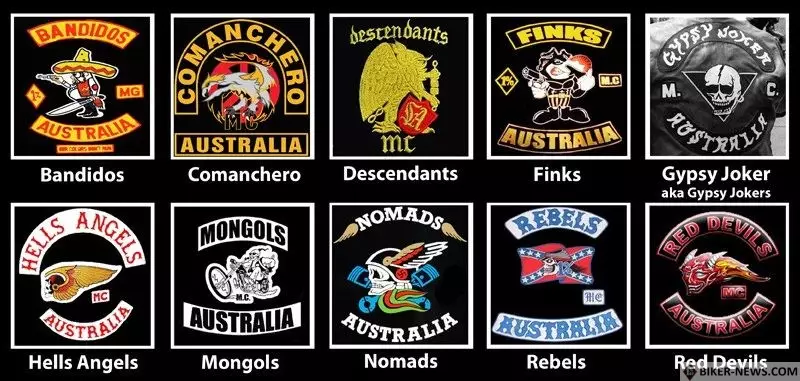The Australian Institute of Criminology (AIC) has today released two papers revealing the changing culture within outlaw motorcycle clubs and the effects on members, as described by former members themselves.
These papers, prepared by the AIC’s Serious and Organised Crime Research Laboratory in partnership with Queensland Police Service, highlight the recruitment of increasingly violent and criminally inclined new members and the need to develop flexible support for those who want to leave clubs.
AIC Deputy Director Dr Rick Brown said the findings reveal never before seen insights into the changing nature of outlaw motorcycle clubs, their effects on members and the consequences associated with wanting to leave a club.
“This study has provided first hand insights from former members that show how some clubs are changing. They described how their former clubs were recruiting younger men who are more prone to violence, attracted by the gangster image, and who are looking to join clubs to get rich quick. There is a real culture change in some clubs, with more conflict and less loyalty between members. And this is having a real impact on the members who are leaving,” said Dr Brown.
The changing culture of outlaw motorcycle clubs in Australia analyses data from 39 interviews with former members in Queensland to explore changes in recruitment and how clubs are managed, as well as the values, norms and relationships experienced and observed while they were a member.
Effects of outlaw motorcycle club membership and the support needs of former members draws on information collected from the same series of interviews to identify consequences associated with leaving the club and the effects of membership experienced before and after leaving.
This research has shown that cultural changes within some MCs are leading many former members, some of whom have been members for decades, to question their involvement in club life. But leaving clubs has consequences, including violence, and former members described many negative effects of being a member. These included poor mental health, the breakdown of relationships, and problems finding legitimate employment.
“We undertook this research with Queensland Police Service to try and inform a new approach to encouraging and supporting OMCG members to leave clubs. While proactive, intelligence-led enforcement remains the cornerstone of policing responses to OMCGs, we hope this research can inform programs that help prevent men from joining clubs and encourage others to leave and stay out of OMCGs,” said Dr Brown.
Detective Acting Chief Superintendent Roger Lowe from the Queensland Police Service’s Crime and Intelligence Command said the joint research partnership exposes the “truth” of motorcycle club membership.
“Police frequently see the damaging impact outlaw motorcycle gangs have on individuals, their families, and the community. Young men are often drawn into these gangs only to find the reality of OMCG life is not what they expected.”
“This pioneering research provides unparalleled insights from ex-gang members, many of who regret their decision to join a gang and now live with the consequences of their decisions. It is hoped the research and the personal accounts will inform and influence prospective members, ultimately preventing crimes linked to OMCG,” said Mr Lowe.
The reports are available at www.aic.gov.au
Make sure you have subscribed to our Facebook page or Twitter to stay tuned!
Source: Australian Institure of Criminology Press Release
